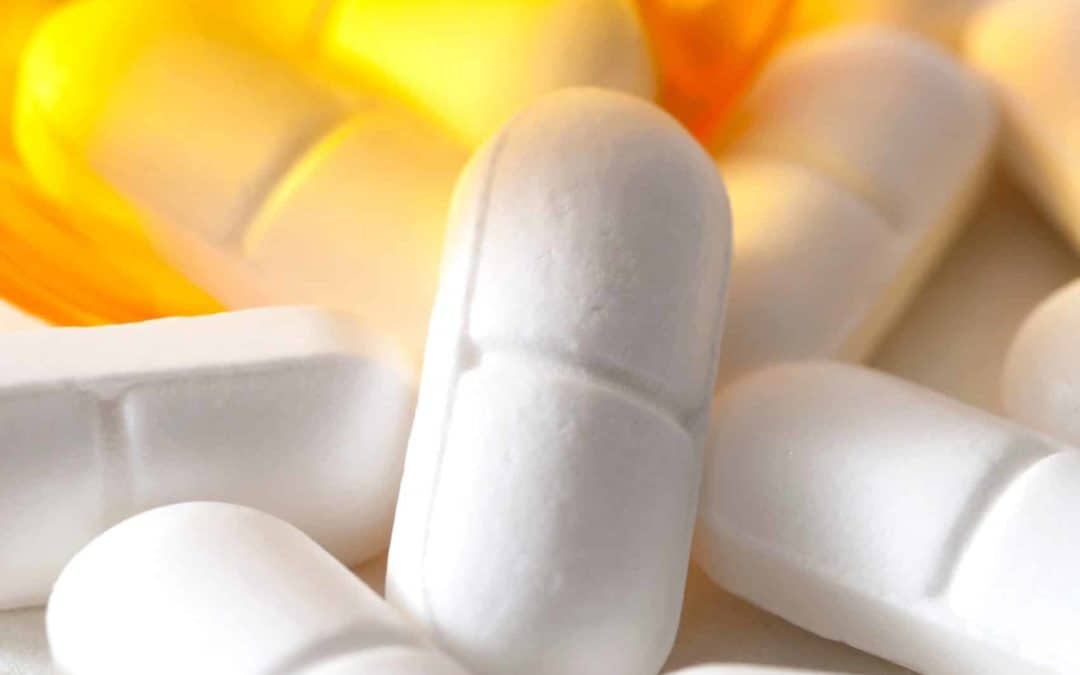Vicodin is generally safe if taken for a short while and prescribed by the doctor. However, even with regular usage, addiction or overdose can be an accidental possibility. In addition, unpleasant symptoms of Vicodin withdrawal can begin once the prescription ends. According to the National Library of Medicine, opioid addiction affects 3 million people in the United States. This challenging situation continues to be a problem, with 191 million prescriptions written in 2017 for painkilling medications. In 2019, 22% of Americans with chronic pain took prescribed opioid medications. Intended or accidental addictions are difficult to break. Professional treatment options can be successful with help from experienced treatment centers.
What is Vicodin?
Vicodin, an opioid painkiller, combines acetaminophen and hydrocodone bitartrate. This central nervous system depressant is designed to treat severe chronic or acute pain and can cause tolerance to build with the possibility of addiction developing. Users find the euphoric effects it can produce when higher doses relaxing but challenge the ability to function appropriately. Feeling detached from their surroundings and content, users can become addicted and seek Vicodin illegally if they have no legal prescription. Within eight to 24 hours after the last dosage of Vicodin, symptoms of Vicodin withdrawal can begin.
How is Vicodin Addictive?
Vicodin is safe, but many accidental addictions occur when deviation from prescription directions occurs. Symptoms of Vicodin withdrawal are unexpected if variation from prescription directions occurs and then the exact dosage is not ingested. In addition, those with chronic pain develop dependence and tolerance quickly. Finally, consuming more Vicodin than prescribed makes it difficult for the body to process.
Users are increasing the Vicodin dosage to achieve pain relief, thus increasing the risk of overdose. In addition, each increased dosage indicates the chance of symptoms of Vicodin withdrawal will increase when dosages are not maintained. Genetic factors of Vicodin addiction can be hereditary, and those who enjoy impulsive behaviors. The following list describes the risk factors for Vicodin addiction.
Risk Factors for Vicodin Addiction:
- Family history of Vicodin abuse or addiction
- Personal history of abusing other substances
- Impulsive behavior tendencies
- Easy access to Vicodin medication
- Family history of drug or alcohol abuse
- Exposure to those who are addicted to Vicodin
Side Effects of Vicodin Use
The effects of Vicodin misuse appear behaviorally, physically, psychologically, and socially. Therefore, symptoms of Vicodin addiction differ for each person, just as signs and symptoms of Vicodin withdrawal differ. In addition, factors of the addiction play a part in determining how severe or dangerous the symptoms can be. Finally, an insidious and compelling desire develops to continue Vicodin consumption.
If you or a loved one can recognize the following symptoms, there may be an addiction present. Awareness of the continuing intractable problem of Vicodin addiction is the first step in ending the crisis. Addiction is dangerous with the looming threat of overdose and death. Fear of discomfort from the symptoms of Vicodin withdrawal can postpone the needed intervention. Symptoms of Vicodin usage include the following:
Behavioral and Psychosocial Symptoms
- Doctor shopping, or going from doctor to doctor to obtain Vicodin prescriptions
- Compulsive and continued use of Vicodin with an inability to stop
- Using Vicodin in hazardous situations, such as driving a car
- Frequent disruptions in work and family life
- No longer fulfilling responsibilities
- No interest in hobbies, sports, or once important factors
- Slurred speech
- No interest in things that were once important
- Feelings of euphoria then apathy
- Disregulation of moods
- Depression
Physical and Cognitive Symptoms
- Constricted pupils
- Insomnia or drowsiness
- Slow or agitated movements
- Inability to concentrate
- Impaired decision making
- Attention difficulties
- Memory problems
- Overwhelming craving for Vicodin
- Thoughts of suicide
Withdrawal Symptoms of Vicodin
The symptoms of Vicodin withdrawal begin when usage abruptly stops. In addition, when the body is adjusting to decreased Vicodin consumption, symptoms can be painful and uncomfortable. The central nervous system, which controls respiration and heartbeat, is affected during withdrawal from the drug. Finally, detoxification from the drug can be complicated when deciding to get help to end Vicodin addiction. It is crucial to rely on professionals for direction and monitoring when ending the usage of Vicodin. Symptoms of Vicodin withdrawal can include:
- Muscles ache
- Nausea, vomiting, and diarrhea
- Yawning and constant flow of tears
- Sweating and fever
- Insomnia and dilation of pupils
- Dysphoric mood
How to Safely Detox from Vicodin
Safe detox is a priority when dealing with the symptoms of Vicodin withdrawal. Physical dependence often requires medical monitoring during detox to avoid serious complications. Furthermore, the discomforts of detox can cause patients to relapse and change the decision to end addiction. Support from an educated staff can help with this issue, including the dispensation of medications. Family and support systems need to be aware of the detox protocols to offer the required understanding for the addict. Individual therapy, group therapy, and family therapy follow the detox program.
Symptoms of Vicodin Withdrawal in Tennessee
September is National Recovery Month. Detox West can allay your fears if you are in Tennessee and considering detox but are concerned with the symptoms of Vicodin withdrawal. We can address your concerns and answer your questions concerning the detoxing process! Detox West professionals work closely with the individual to design an individual treatment plan. Your comfort is a priority in this crucial transition! Leave the addiction lifestyle behind and begin to enjoy a healthy and sober lifestyle. Contact us to begin your recovery!


